#victory city
Text
2024 Book Review #13 – Victory City by Salman Rushdie
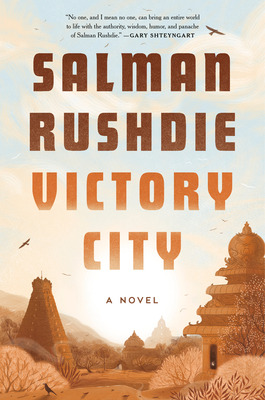
One of my goals for the year is to read more proper literature (here defined as fiction I can mention reading to my mother without getting judged for it). I’ve never read anything of Rushdie’s before, but I did remember his name in the news recently due to the whole attempted-murder thing and, happily, my library actually had a copy of his newest work. So, picked this up and read it sight unseen!
The book follows one Pampa Kampana – a nine-year-old girl who, in the 14th century, witnesses her city destroyed, and her mother burning herself alive. She is then inhabited and blessed by a goddess, blessed/cursed with a lifespan measured in centuries and the destiny of raising an empire up and seeing it fall before she dies.
The narrative is framed as a modern adaptation/summary of the epic poem recounting her life Pampa completes before finally dying, finally discovered and translated after being forgotten in the ruins of te imperial capital for centuries. The story is largely a story of this miraculous, semi-utopian empire, as told Pampa’s eyes (and with a lengthy digression during the years she spends in exile).
This is a story that exists somewhere in the muddy middle ground between historical low fantasy and magical realism – it’s in some sense an alternate history of the Vijayanagara Empire, and replete with historical trivia and references, but is quite clear from the outset that accuracy is not really something the book cares about. Instead, the book’s Vijayanagara – always written as Bisnaga, as it was translated by a historical Portuguese chronicler whose also a minor character in the story, to prevent confusion – is basically allegory and morality tale with a light coating of history for flavour.
Not that I can really begrudge Rushdie for his strident politics (as far as I can tell I basically agree with him on all of it), but this really does feel like one of those old fantastical utopias, or a political treatise that gets past the censors by pretending to be the history of a foreign country, more than it does a novel. Which could definitely work! But in this case really didn’t, at least for me. There’s enough time spent on characterization and character drama to eat up pages, but not enough for it to ever feel like they’re people and not just marionettes acting out a show. I suppose the best way to get across the reading experience is that I was reading a proper 500 page history book at the same time as I read this, and this felt like the bigger slog by far.
Though part of that might just be disappointed expectations that I really had no right to have in the first place? As I said, I had Rushdie slotted in my head as a literary author, but really I don’t know nearly enough about him or his work to justify that. So I came to this expecting to be at least a bit wowed and bedazzled by the artistry and beautiful prose on display – and like, eh? Not bad, to be sure, the narrative voice and the framing device are both fun and fairly well done. But having read it there’s really not a single passage or sequence I can say has stuck with me.
The comparison that comes to mind is Kalpa Imperial by Angélica Gorodischer, which is also a book-length epic history of a fantastical empire that never was which laughs at all conventional wisdom about pacing, characterization and plot (and which also has been shelved as magical realism for what are basically reasons genre snobbery imo). It’s been a few years since I read it, but from what I recall that agreed with me far more. Maybe just because it abandoned the conceit of a single protagonist and family melodrama entirely, or maybe because it had a bit more subtle in its social commentary (or maybe it was just better written on a sentence-to-sentence level).
Though I should say, there’s every possibility I’m being a bit harsher on this than it entirely deserves – it’s an entirely competent book! The politics are blatant but like a) they’re politics I agree with and b) they’re nowhere near the most blatant or forced-feeling inclusion of progressive politics in fiction I’ve seen recently. However, this is also a piece of writing that’s among other things very clearly and directly about how important and sublime and world-changing the art of writing is. Which is like a movie about making it in showbuisness, or a musical about how great singing is. Automatic deduction of a full letter grade.
30 notes
·
View notes
Text
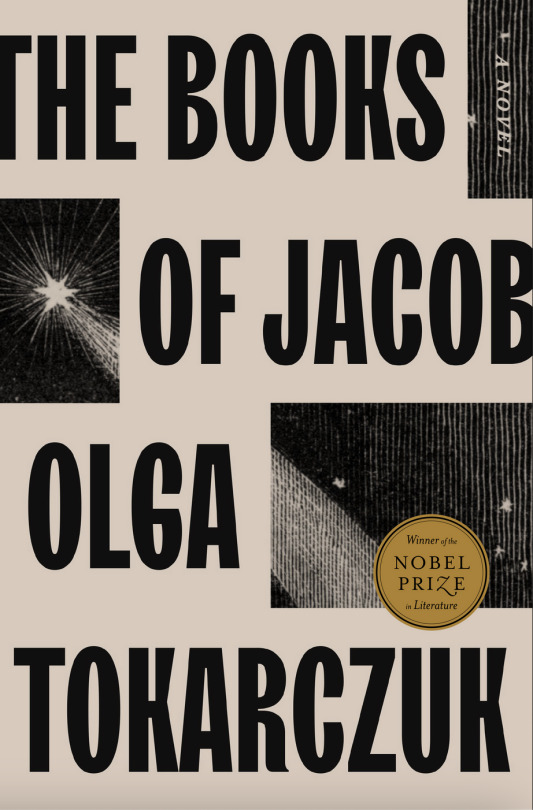
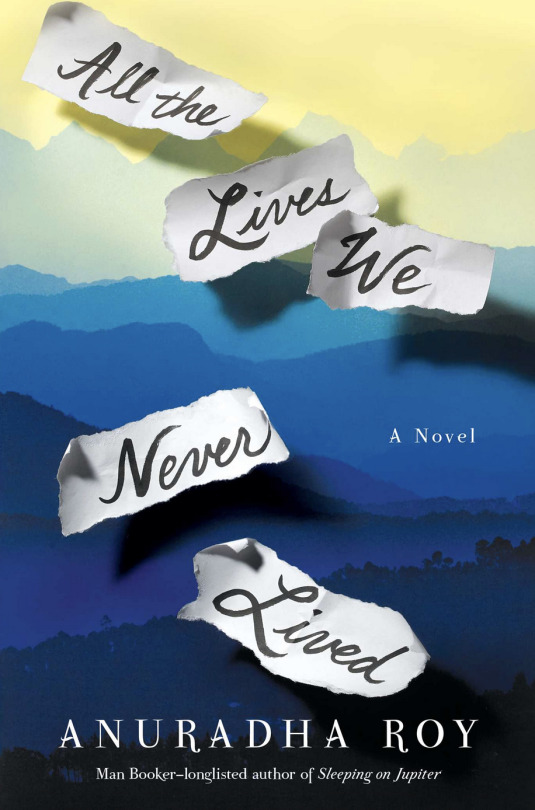

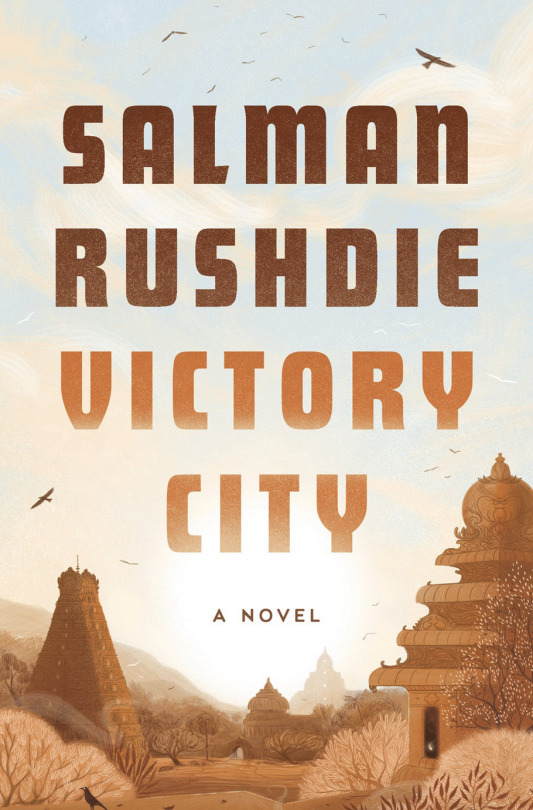
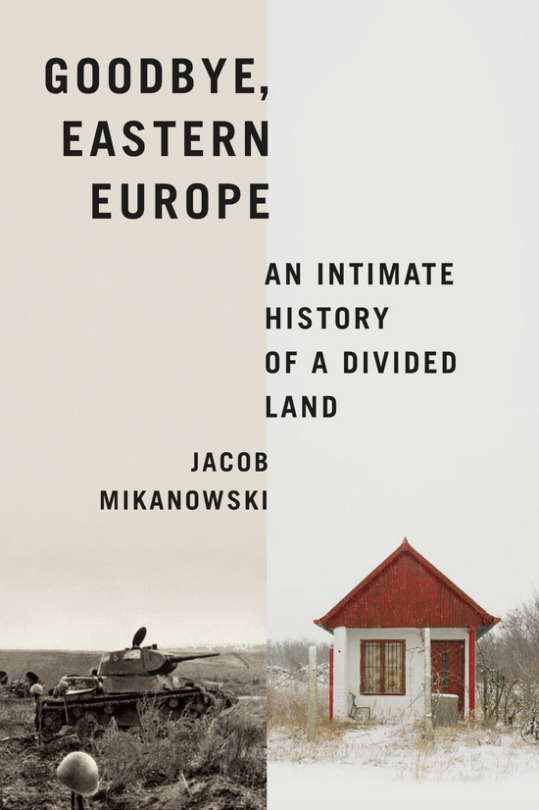

I was tagged by @when-did-this-become-difficult to list my top six reads of the year, and -- once I had gone through my 'currently reading' tag to figure out what I'd read this calendar year -- it was a hard decision! For me, it was a good year for historical fiction (honorable mentions to For Thy Great Pain Have Mercy On My Little Pain and Libertie) and for Asian fiction. It was also a year in which I read more new fiction than I sometimes manage to do. Mikanowski's Goodbye, Eastern Europe is the only non-fiction entry on the list; I am still envious of his prose. And yes, I'm counting The Books of Jacob because this is the year in which I successfully finished the (brilliant, also massive) thing.
Tagging, in a non-obligatory sort of way: @bluestockingcouture, @qqueenofhades, @lettersfromthelighthouse, @bibliophilecats, @kivrin, @counterwiddershins (and if you'd like to consider yourself tagged, feel free)
#adultbooklr#unsterblich sind nur die anderen#the house of doors#the books of jacob#victory city#all the lives we never lived#goodbye eastern europe
22 notes
·
View notes
Text
"On the last day of her life, when she was two hundred and forty-seven years old, the blind poet, miracle worker, and prophetess Pampa Kampana completed her immense narrative poem about Bisnaga and buried it in a clay pot sealed with wax in the heart of the ruined Royal Enclosure, as a message to the future. Four and a half centuries later we found that pot and read for the first time the immortal masterpiece named the Jayaparajaya, meaning “Victory and Defeat,” written in the Sanskrit language, as long as the Ramayana, made up of twenty-four thousand verses, and we learned the secrets of the empire she had concealed from history for more than one hundred and sixty thousand days."
Salman Rushdie really just started his most recent novel with this, like damn
60 notes
·
View notes
Text

tag urself im a follower of no god, a member of the genders beyond and in between, a rank commoner, a foreigner, and an egotistical fool.
9 notes
·
View notes
Text

Title: Victory City | Author: Salman Rushdie | Publisher: Random House (2023)
2 notes
·
View notes
Quote
History is the consequence not only of people's actions, but also of their forgetfulness.
Salman Rushdie, Victory City
18 notes
·
View notes
Text

This is the Buddy for February 8th. It's Narasimha, the lion-faced deity.
I finished the most recent Salman Rushdie novel, Victory City, a while ago, and I gotta say I didn't enjoy it much. It's weird because he used to be my favorite writer, but compared to his earlier books that one felt really dry and shallow. There's a part of the book that involves the construction of a statue of Narsimha so that gave me the idea for today's drawing, but, other than that, the book wasn't too memorable.
Other than that, I'm not too happy with tumblr either. I never liked social media - facebook, instagram, that other one, not really my style. But I've always wanted to write. Either comics, novels, or even just random stories to post online. And it's impossible to be a creator without building an online presence. So, therein lies my dissatisfaction. You could argue the problem isn't social media itself, but the fact that I don't like to deal with people. I don't really see it that way, but, maybe it's true. I think that, although it'd have been much harder to have an online presence before social media was a thing - before MySpace and whatnot - it felt like it'd be more enjoyable, too. Less drama.
6 notes
·
View notes
Text

If there was a competition for the best pastiche of the opening words of a Salman Rushdie novel, a pretty good entry might be: “On the last day of her life, when she was two hundred and forty-seven years old, the blind poet, miracle worker and prophetess Pampa Kampana completed her immense narrative poem about Bisnaga”. By coincidence, these are also the opening words of Victory City, a book Rushdie finished shortly before last summer’s tragic stabbing.
From there, he goes on to retell the events laid out in Pampa’s poem—and to prove all over again that nobody else writes novels quite like this, where history and magic realism are perfectly intertwined.
Bisnaga, for example, was a real Indian city that between the 14th and 16th centuries became one of the grandest in the world. On the other hand, it seems a safe bet that it didn’t come into existence, as it does here, when a goddess-inspired prophetess told two cowherds to scatter seeds on the ground. Or that once these instantly grew into an urban wonder, she whispered to the newly fledged inhabitants the stories of their lives and families, and of the city’s past.
Either way, soon afterwards, one of the cowherds crowns himself king and Bisnaga’s cycle of greatness and decline begins. Among much else, Rushdie gives us talking monkeys, people transformed into birds and Pampa’s own ability to live for centuries without much ageing. But we also get plenty of recognisable politics as the city flourishes when at its most tolerant and falls apart whenever a ruler decides that religion means only that “we are good, they are bad”. Meanwhile, for all the strangeness of the magic bits, Rushdie is as impressive as ever at such traditional literary satisfactions as beautiful pacing and vivid, unforgettable characters.
Daily inspiration. Discover more photos at Just for Books…?
2 notes
·
View notes
Text
Victory City
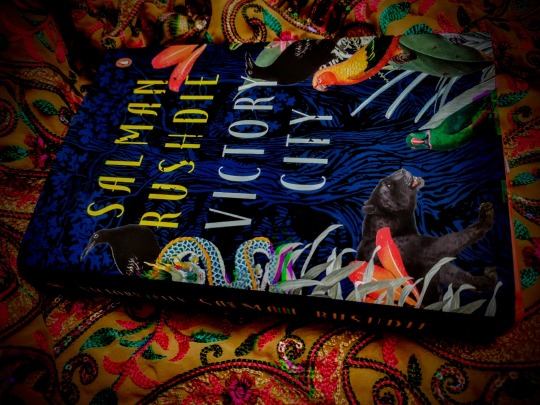
The latest Salman Rushdie, and the more potent when you know that his life has been made an attempt on already, and that he survives like the fighter he is. In this epic novel, because it's more epic than novel actually, he writes of the rise and downfall of a whole empire. You may even say, garnering similarities with his narrative, okay, Pampa Kampana's narrative, and with the nonsensical atrocities that are happening today, that his voice has prophetic overtones. Because:
'Anyway,' she wrote, it's good to learn that over there is not so very unlike over here, and that human intelligence and human stupidity, as well as human nature, the best and worst of it, are the greatest constants of the changing world.'
And right she is. Not only over there and over here, but also then and now. Then, the Remonstrance was fighting to get back old familiar names of streets because the rulers were changing their names to make them starkly religious, and i hardly need to point out why i mention this. Rushdie's epic prose takes you right back to this divine muse-inspired Pampa Kampana and her magical abilities which she revered as well as was weary of. You travel a long way but you don't get a prediction as to how our civilisation would really end, because, as Rushdie states:
Words are the only victors.
#books#reading#currently reading#epic#modern epic#postcolonial literature#magic realism#modernist literature#modernism#salman rushdie#victory city#pampa kampana#impressions not reviews
3 notes
·
View notes
Photo

Victory City: A Novel
By Salman Rushdie.
10 notes
·
View notes
Text
Waiting on Wednesday!
Today on my blog I have a #WaitingonWednesday post spotlighting a 2023 fantasy by a very well known writer that is said to read like a translation of an ancient epic... any guesses!
Waiting On Wednesday” is a weekly meme that first originated at Breaking the Spine but has since linked up with “Can’t Wait Wednesday” at Wishful Endings now that the original creator is unable to host it anymore. Either way, this fun feature is a chance to showcase the upcoming releases that we can’t wait to get our hands on!
Hello, hello! I hope you’re all having great week so far. This week…

View On WordPress
0 notes
Text
In my attempt to read more real prestigious capital-l Literature I have apparently grabbed highbrow genrefic (magical realism, in this case). Again.
I mean not complaining but it is pretty funny.
14 notes
·
View notes
Text
"Things are simpler for vegetables," mused Bukka. "You have your roots, so you know your place. You grow, and you serve your purpose by propagating and then being consumed. But we are rootless and we don't want to be eaten. So how are we supposed to live? What is a human life? What's a good life and what isn't?"
Victory City, Salman Rushdie
47 notes
·
View notes
Text
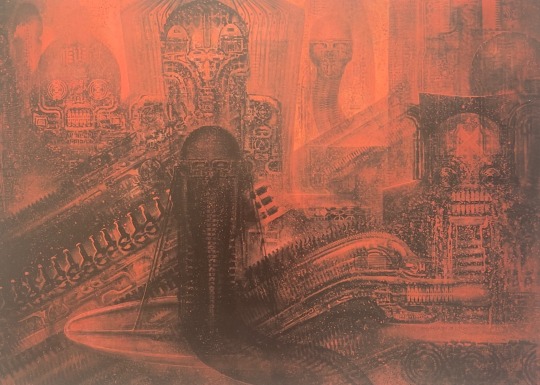

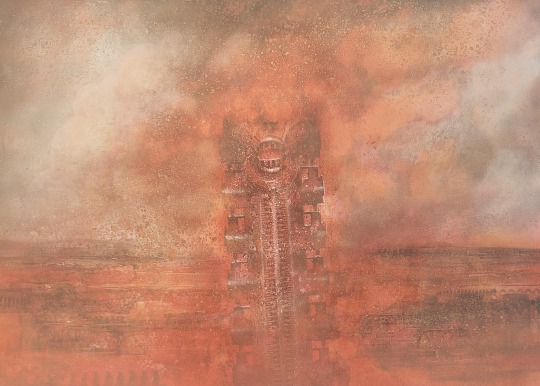
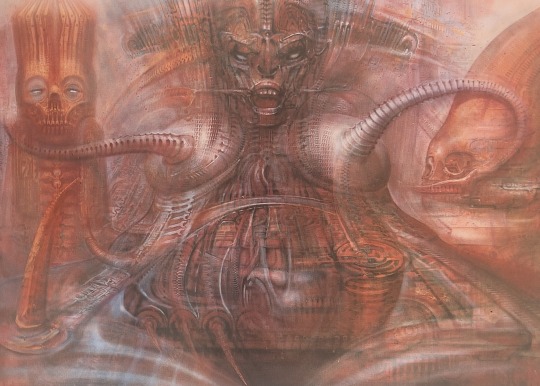
H.R. GIGER: Red Biconical City & Victory (1983)
1K notes
·
View notes
Text

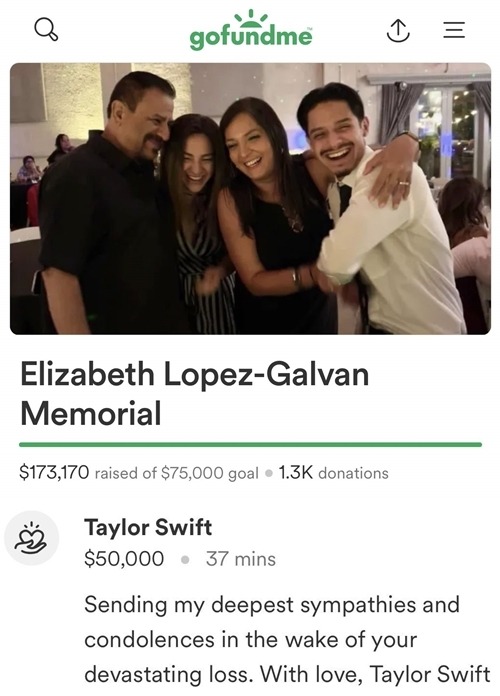
Taylor Swift has donated $100K to a GoFundMe for family of woman killed at Chiefs victory parade.
65 notes
·
View notes
Text


batman confidential #1
[ID: Alfred Pennyworth walking down the stairs into the Batcave—where Bruce Wayne sits in the dark and in his costume with the cowl pulled down. Alfred announces, “Coffee, eggs benedict and The Daily Planet, Master Bruce. I took the liberty of presuming you would be taking breakfast in the cave this morning.” Alfred sets the tray down on a nearby table as Bruce silently holds a gun up without looking at him, his finger still on the trigger. Alfred gasps, “Master Bruce? That gun, is it...?” He trails off but Bruce speaks up. “The one he used. That night. On them. I took it from the G.C.P.D. evidence depository last year... there was nothing more they could learn from it.” Bruce unloads it, letting a bullet clank to the desk before he picks it up and stares somberly at it. Alfred stiffens up as he asks, “I see. And what precisely did you hope to achieve by stealing your parents' murder weapon, if may be so bold as to inquire...? Beyond an increased capacity for morbid introspection, that is.”
Bruce elaborates, “He fired two rounds. 117-grain hollowpoints... twenty-five cents apiece from any gun store. Is that all their lives were worth, Alfred? Fifty cents of ammunition...? He left four rounds in the clip, one in the breech, dropped it and ran—afraid to finish what he started. And I just stood there. Helpless.” Alfred tells him, “The good your parents did lives on, Master Bruce. And I, for one, am glad he left those final rounds in the gun. I happen to believe the world is better served for having you in it.” Bruce still doesn't look at Alfred or acknowledge the kind statement. He'll go on to explain that a young mother was murdered while he was on patrol and that he blames himself for not preventing it. END ID]
#SORRY JUST THINKING ABOUT THIS AGAIN AND BRUCE BEING SO AGGRESSIVELY BUT PASSIVELY SUICIDAL...#sitting alone in the dark thinking about the deaths he couldn't prevent. thinking about a child who will never know their mother because he#couldn't save her in time (but he did save the baby but thats not enough; itll never be enough.#he doesn't celebrate the victories on account of always mourning the failures)#holding a gun—THAT gun—and thinking his life is worth less than 25 cents of ammunition. that it still is.#blaming himself for his parents murders for so long that it carries to every stranger. he holds them all in his stupid bleeding heart.#alfred saying hes GLAD bruce wasnt murdered and all bruce can think is what use is he if he cant prevent others deaths?#why was he spared but his parents werent? they were helping the city but ‘how can i make a difference when all i do is mop up bloodstains?’#AND!!!! JUST HIM HAVING THE GUN!!!! HE STOLE IT WHEN HE BEGAN BEING BATMAN AND ALFRED NOT KNOWING ABOUT IT!!!!???!!!!#HOW MANY TIMES HAS HE SAT IN THAT DARK CAVE JUST HOLDING IT AND FEELING THE WEIGHT OF IT THAT GETS HEAVIER AND HEAVIER WITH EACH FAILURE?#HOW MANY TIMES HAS HE DEBATED USING IT ON HIMSELF? IF GOTHAM WOULD BE BETTER FOR IT?#JUST!!!!! BRUCE !!!!!!!!!!#happy sad boy sunday !!!#<- it's wednesday.#c: batman confidential | i: 1#crypt's panels#bruce wayne#alfred pennyworth#alfred & bruce#bruce & guns
79 notes
·
View notes